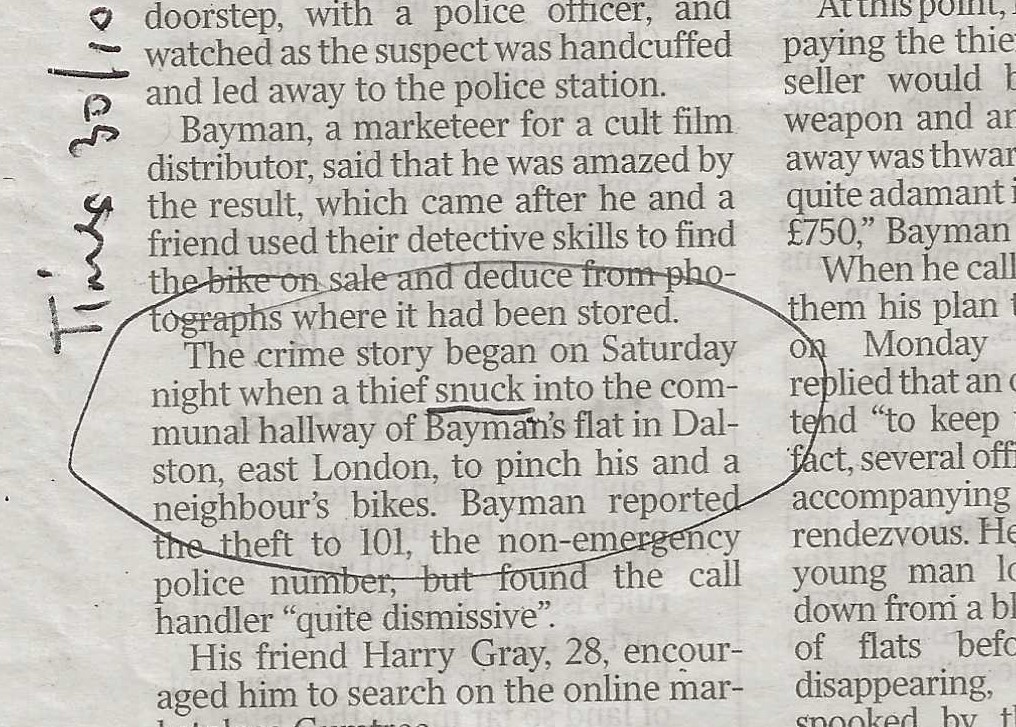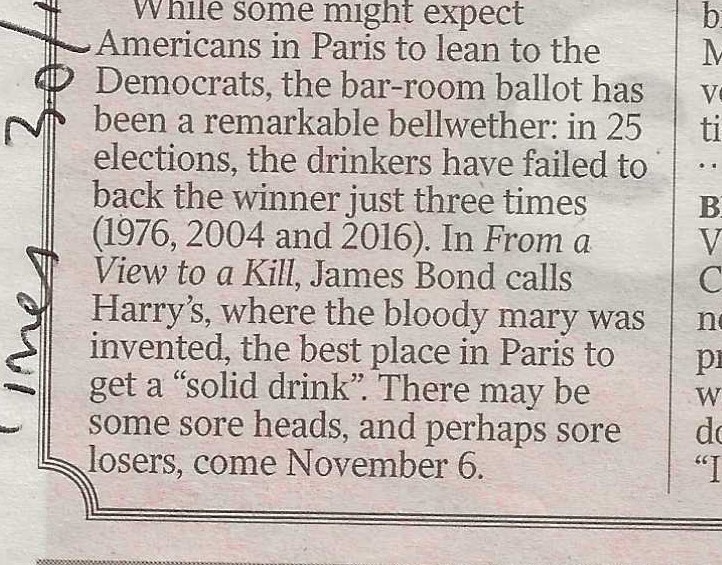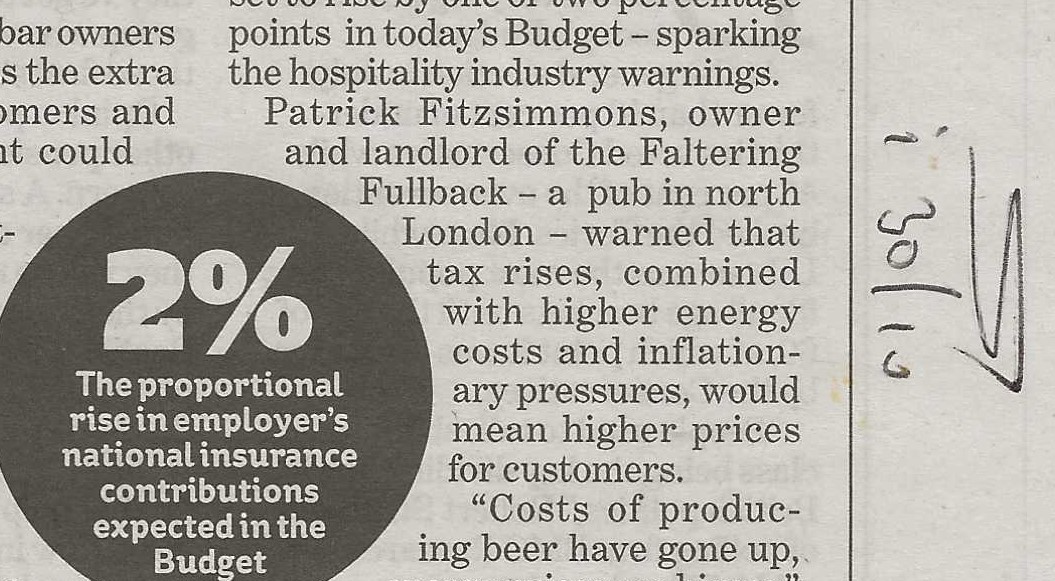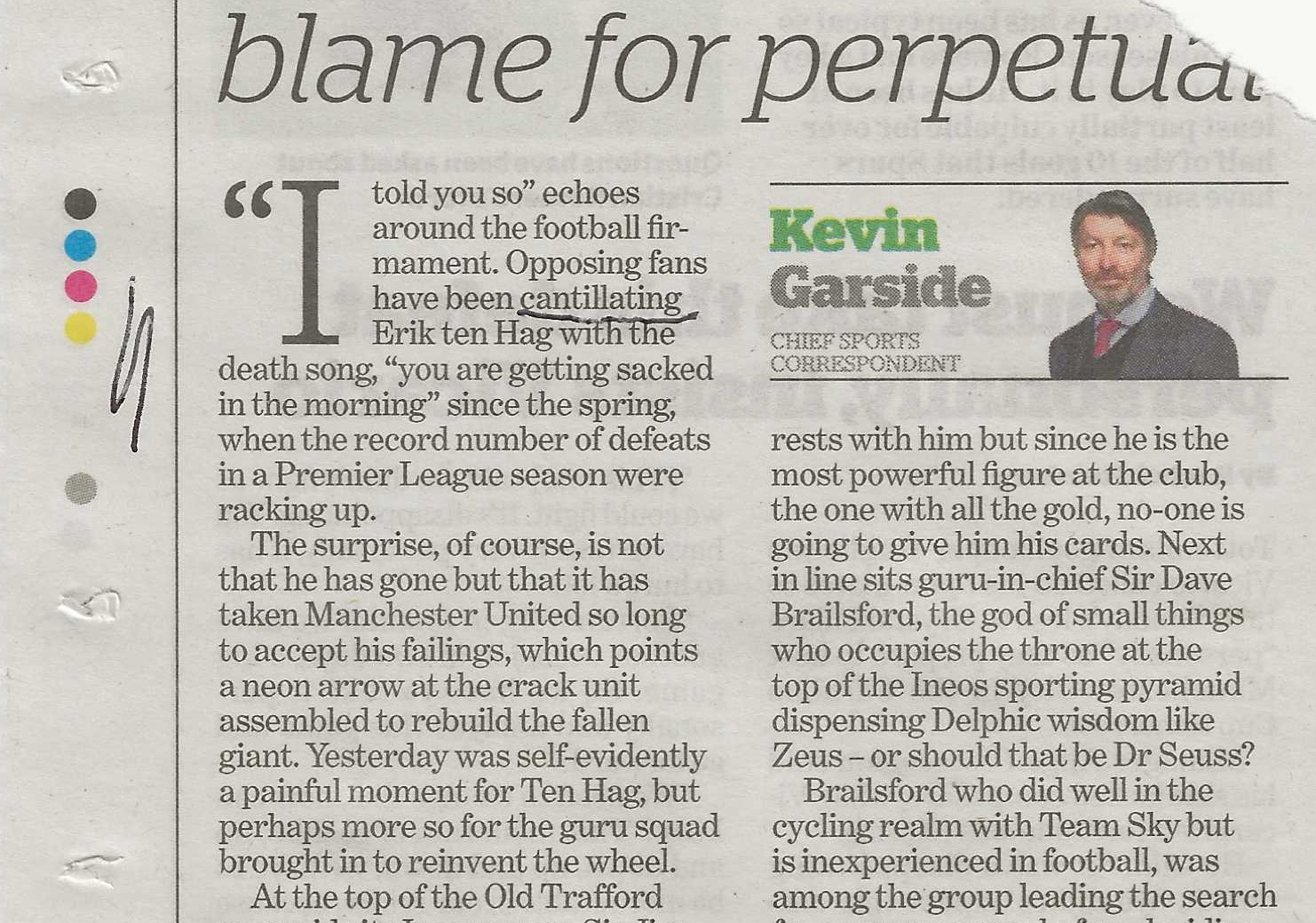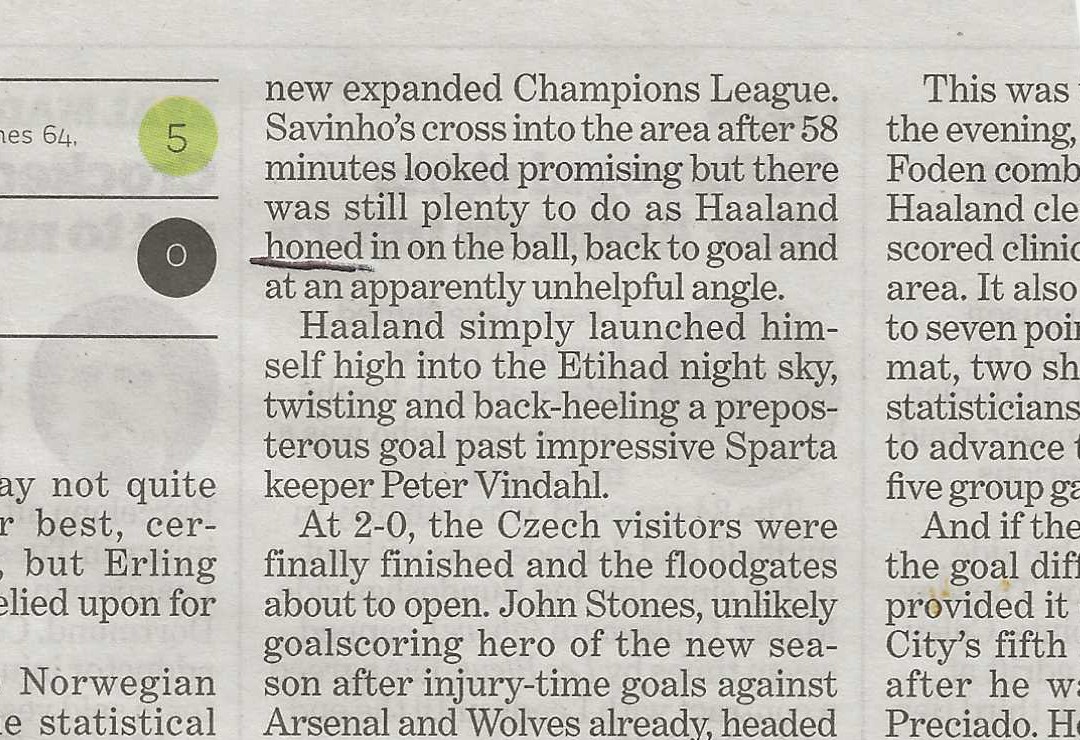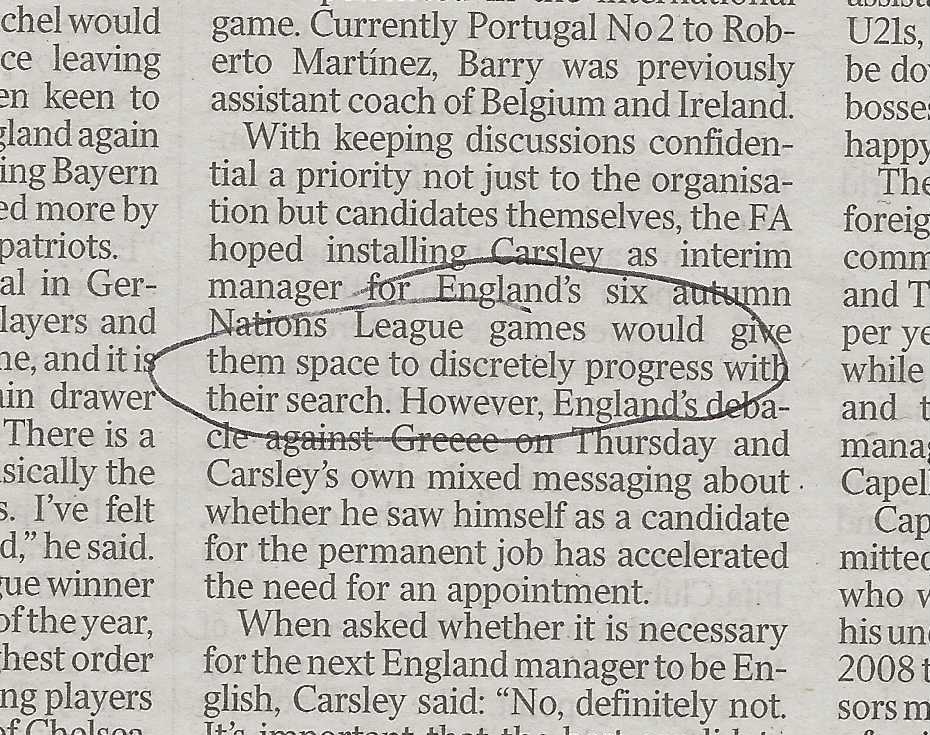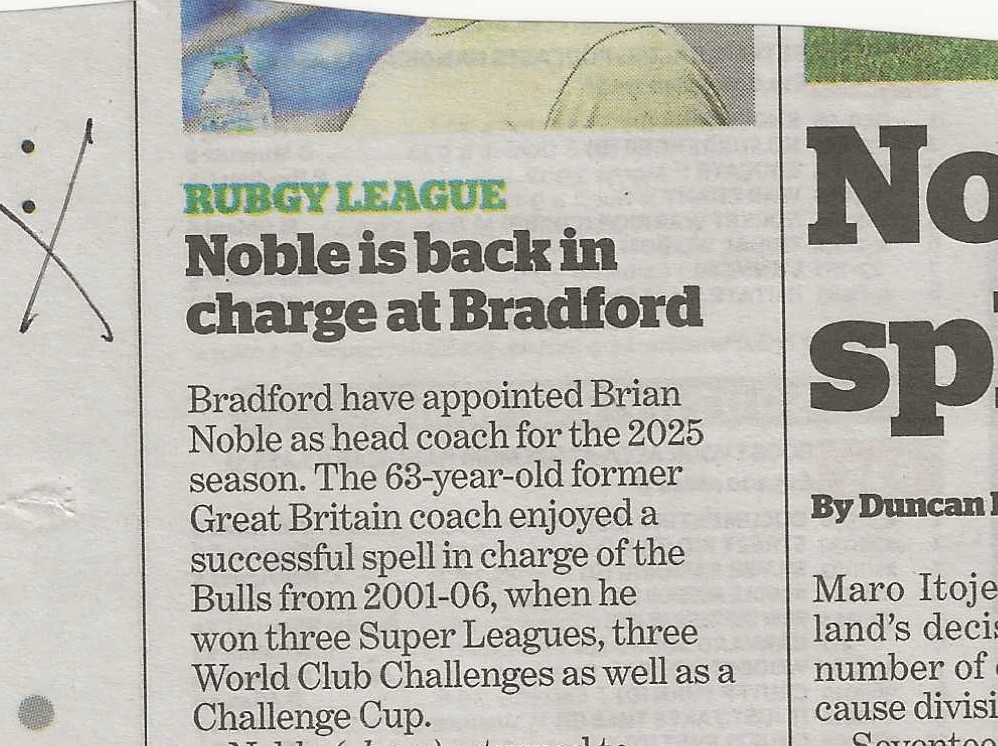
i newspaper, October 31, 2024
I grew up in the hot metal era, when subs were subs. We were not expected to be typesetters, proof-readers and compositors all in one (for me and many others it was horrible to be responsible for so many skilled people being out of a job, notwithstanding the Spanish practices that existed). One of the few advantages of ‘new tech’, as we called it (no doubt the term is something far more up to date now), is the spell-checker. It won’t pick up the difference between ‘their’ and ‘there’ (though I expect it soon will) but it would stop your publication looking ridiculous with ‘Rubgy’. Use it.
